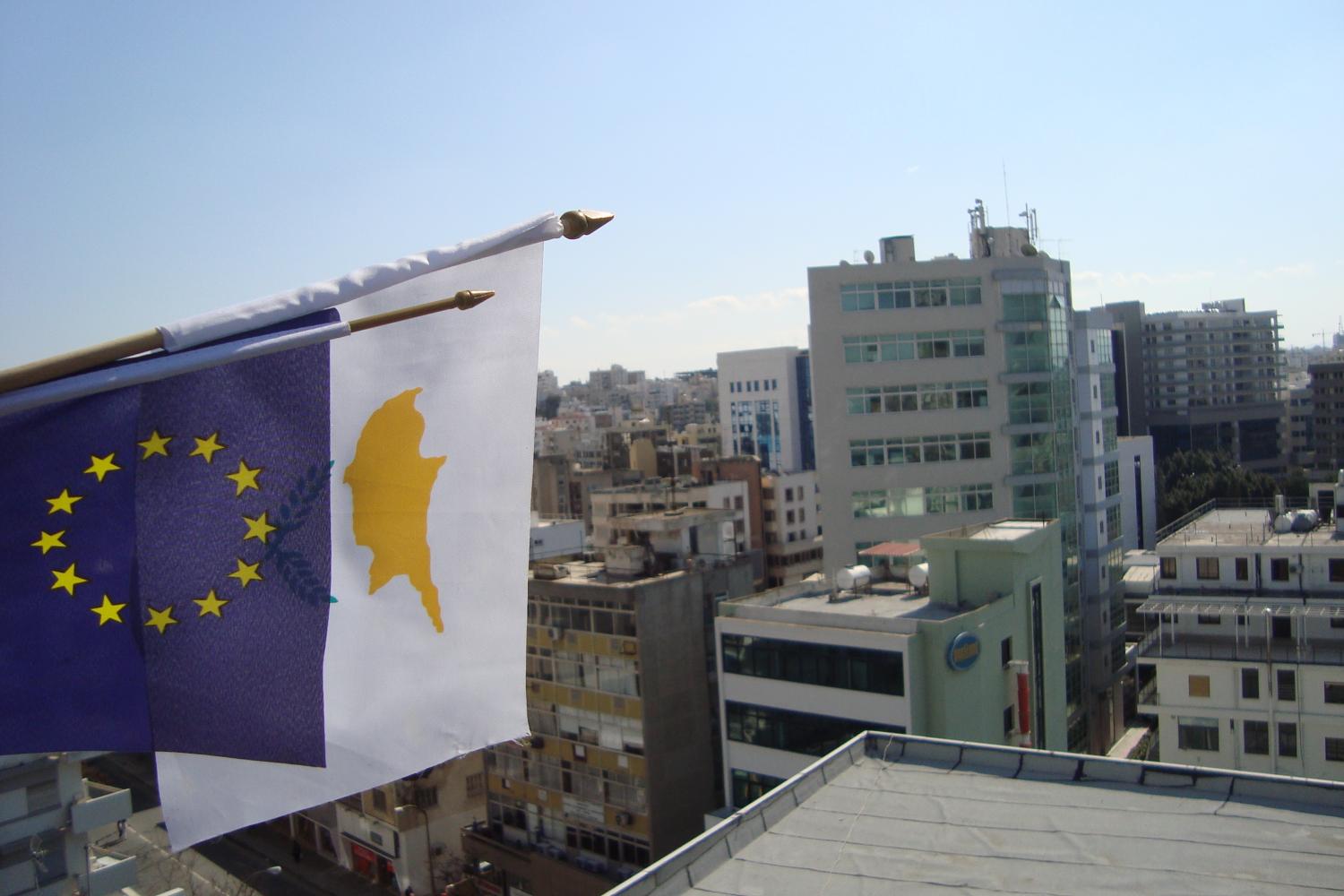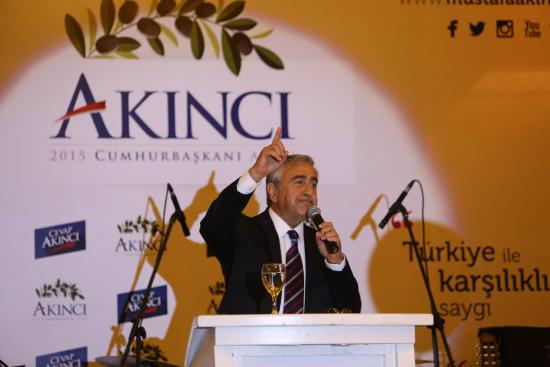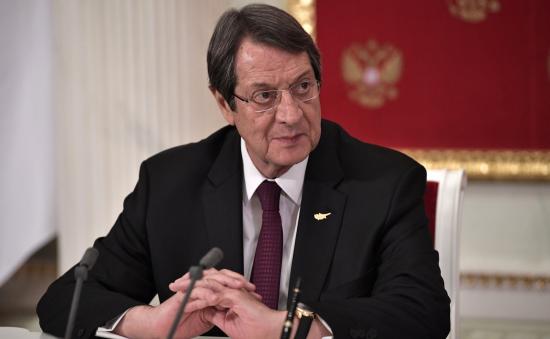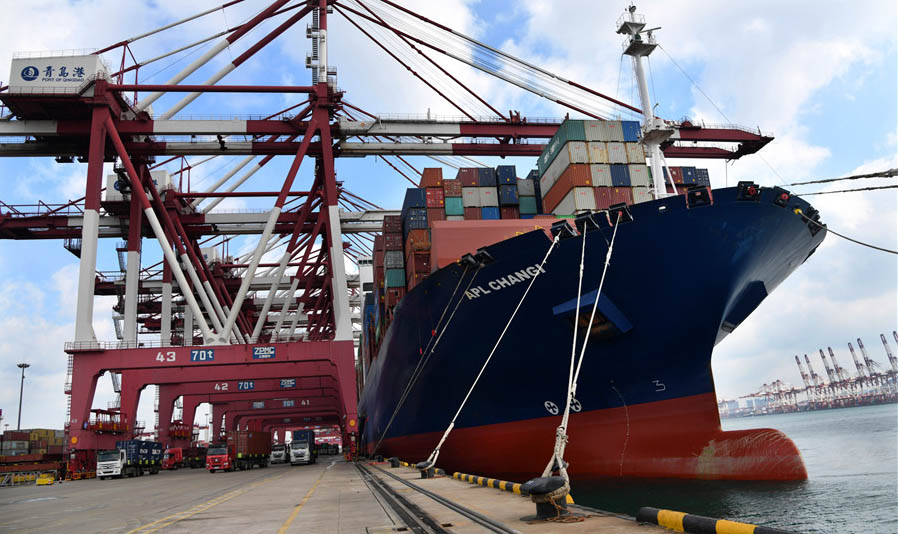
In Cyprus – It’s Time to Fish or Cut Bait
A reunified Cyprus could be a windfall for all Cypriots, especially with the recent discovery of billions of dollars’ worth of natural gas reserves off the coast of Cyprus. However, due to continued Greek intransigence, the possibility of a deal in 2019 seems remote. For the first time in decades, the Turks are now suggesting that formalization of the status quo may be the only solution to move ahead.
Over the past 55 years there have been numerous attempts to negotiate a deal that would reunify all Cypriots. Cyprus was declared a Republic in 1960; however, within three years political conflict and strife between Turk and Greek Cypriots led to violence. In 1964, the United Nations was forced to deploy a peacekeeping force to the island which remains there to this day. Matters worsened in 1974 when the ruling military junta in Athens instigated a coup to try to unify Cyprus and Greece. The subsequent violence against Turkish Cypriots led to a military intervention by Turkey to protect the Turkish Cypriot minority. By 1983, Turkish Cypriots declared their independence as the Turkish Republic of Northern Cyprus (TRNC). To date, Turkey is the only country to officially recognize the TRNC. The United Nations has long taken the position that the Island state can be reunited. For this reason, no other countries have recognized the TRNC. When Cyprus became a member of the European Union in 2004, it was mainly a benefit to the South, as Turkish Cypriots were embargoed from trading with the EU because of the 1983 Declaration of Independence. The EU ban adversely affected the TRNC economy and invariably strengthened the already-close ties between the Turkish Cypriots and Turkey.

Since 2000, there have been two attempts to unify all Cypriots under one government. In 2004, former United Nations Secretary General Kofi Annan introduced The Annan Plan, also known as The Cyprus Reunification Plan. It proposed restructuring the Republic of Cyprus as the "United Republic of Cyprus,” which would be a federation of two states. It was revised a number of times before being put a vote in a 2004 referendum. The proposal was supported by 65 per cent of Turkish Cypriots who believed a deal was in the collective interests of all Cypriots. However, 75 per cent of Greek Cypriots voted against it and the deal died. United Nations and guarantor countries Turkey, Greece, and the U.K. tried again in 2017, and held talks in Crans-Montana, Switzerland. They ended in failure last year due mainly to the Greeks’ refusal to compromise. The Greek negotiators at the meetings were disingenuous and obstinate: it was apparent they only wanted a deal on their terms, or no deal at all. They may get their wish, but it may come back to haunt them.
Mustafa Akinci, President of the Turkish Republic of Northern Cyprus (TRNC), had previously said that a Cyprus solution “can be shaped through common sense,” and that “the support of Turkey and Greece in the process is vital.” He has always been fully supportive of the UN’s and European Union’s roles in helping both sides to come to a deal. Yet, his recent comments may signal that he has run out of patience with both Greece and the Greek Cypriots’ continued stubbornness and inability to negotiate in good faith for a unified Cyprus. On January 29th, Akinci released a statement, saying “it’s getting close to the point where it may be too late to make it (a deal for Cyprus) happen at all.” He added that “Time is running out fast. Either we manage to come to an agreement on what is possible and reasonable, or the status quo, in other words, the division, will be permanent.”
If the collapse of the talks rally means continuing with the status quo, then there would be no logical reason for the countries of the world not to officially recognize the existence of Turkish Republic of Northern Cyprus. Many observers agree: Turkish Cypriots should not continue to be economically punished and embargoed by the EU because their Greek neighbours in the South and in Athens can’t come to terms with a suitable unification agreement.

Canada should take a position in this matter. Since 1964, Canada has been closely associated with Cyprus via the United Nations Peacekeeping mission. Over 25,000 United Nations soldiers have served in the Cyprus mission and 160 have been killed, including 28 Canadians.
To an outsider, especially Canadians, a unified Republic or Confederation in Cyprus seems the ideal solution. For 150 years, Canada has peacefully coexisted as a two-nation state within a confederation—three, really, as Canada’s Indigenous people are also recognized as founders in the 1982 Constitution Act and have guaranteed protections and political rights.
The rich fabric of the Greek and Turkish heritage in Cyprus is a strength—something to celebrate. Similarly, in Canada, our diversity is strength. English Canadians long ago recognized “the French fact” and accepted the reasonable requests made by the French minority here that their culture and rights must be protected. The only way to do this was to ensure they had equal political rights alongside the English in Confederation and make sure they were given the legislative protections to guarantee those rights. For Canadians, this meant recognizing Quebec as a nation within Canada and providing bilingual language services across all federal departments. Today Canadians from coast to coast take pride in our multicultural heritage. Canadians are proud to stand up and support each other as Canadians regardless of our ethnicity, languages or religion.
Canada has a population of approximately 26 million Anglophones, 6.5 million Francophones and another 3 million who are either of Chinese, Punjabi, Spanish, Filipino or Arabic heritage. We have learned that by focusing on our common interests we can all win. If the Greek Cypriots and Turkish Cypriots can get a deal, Cyprus could surely be the Jewel of the Mediterranean, as well as a role model for a world scarred by petty intolerances, greed and religious differences. The religious practices of both Islam and Christianity are based on the ideas of generosity, humbleness, sharing and peace. These mutual values should be the backdrop for any Cyprus reunion.
However, if the parties cannot agree on a unification deal, Canada should be ready to step forward and formally recognize the independent Turkish Republic of Northern Cyprus. It is not fair to continue to economically boycott and punish the people of Northern Turkey because Greek obduracy . Although both sides bear responsibility for the conflict in Cyprus, it was a Greek-led coup d’état against a democratic government in Nicosia that forced Turkey to send troops to protect the Turkish minority in Cyprus 1974.

There is no doubt that the Ankara relationship with Turkish Cypriots has been uneven. Today, the majority of Turkish Cypriots are secular Muslims who are more moderate in the practice of their religion. While they appreciate Turkish President Recep Tayyip Erdoğan’s government economic support, trade and investments, many expressed concern when Erdoğan commissioned a magnificent new mosque to be built in Turkish Cypriot suburbs of Nicosia. Many of them believe the encouragement of religious symbols and education in Cyprus is proof that Erdoğan has a hidden agenda for Cyprus.
Most Turkish Cypriots favour reunification under the right conditions, which include political equality with the South and a sharing of the island’s vast resources (like the benefits of the recent off-shore energy discoveries). By any standard, moral or legal, a portion of the newly-discovered reserves belong to the Turkish Cypriots, whether or not they are in a unified Cyprus. Turkey and Turkish Cypriots are well within their rights to demand a portion of any revenues from these gas reserves should Cyprus—in its current state—extract them. The obvious solution is to get a unification deal and share the wealth with all Cypriots.
Turkish Cypriots have been treated unfairly by the EU with the embargo, but they have survived—and in some ways, thrived—in spite of it. Greece, on the other hand, has seen its economic fortunes depleted since the economic crash of 2008, and its economy is still in shambles when compared to the stronger, more stable Turkish economy. The Greeks need to realize the pie is big enough for everyone.
Religious and societal disagreements exist in all countries and cultures. The real issue in Cyprus is whether or not the negotiating parties can find enough generosity to agree on a common path forward that is in the economic interests of all Cypriots—both Greeks and Turks. This will lay a prosperous path for future generations, crowning the unified Cyprus as the Jewel of the Mediterranean. Today, the fate of Cyprus rests in the hands of Greek Cypriot President Anastasiades. If he truly wants a reunified Cyprus for all Cypriots, he must heed the words and wisdom of Socrates, the greatest Greek of them all.
“If all our misfortunes were laid in one common heap whence everyone must take an equal portion, most people would be content to take their own and depart.” – Socrates









